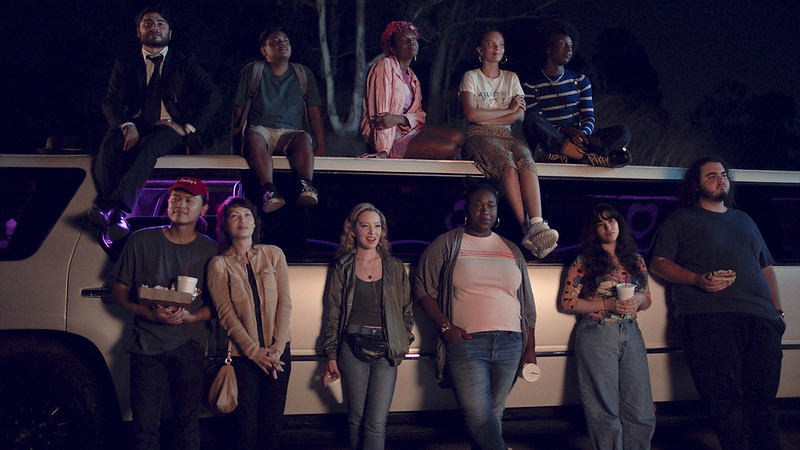
Sundance Film Review: Summertime
Sundance
Summertime
Sundance Film Festival
Director: Carlos López Estrada
Opening with a girl wearing roller skates, singing poetry into her guitar on a pier in Venice Beach, Summertime establishes the plot as a snapshot in the day of a life of different teens and young adults around Los Angeles. There are many characters in the story, all loosely connected through their own struggles and poetry. Summertime is essentially a musical that uses raw, emotive poetry instead of music.
Kicking off the plot with the poem “Ode to Yelp,” by Tyris Winter, the audience follows Tyris while he searches forlornly for a cheeseburger, leaving hilariously honest Yelp reviews in his wake. Sidewalk rappers find the Tinsel Town magic that takes them to stardom, while young women who grew up in L.A. reminisce as they prepare to go to college and a young kid tags the city with his name on any free wall space he can find.
Some of the poems, such as “Perfect” by Maia Mayor and “Hey, I’m Gay” by Mila Cuda, were familiar to me, but the way they were imagined through the lens of a larger story surrounding them was really powerful and effective. I really admired how the film was driven by the poetry. Each poem became a plot point, revealing something personal about each character. For me, I was really sold on the brutal, raw honesty of Marquesha Babers when her character in the story finally takes her therapist’s advice and she goes to “rap battle” her demon.
Obviously, since this film is poetry-driven, the plot was simplified in order to work with the many different interlacing stories happening at the same time. The lack of centralized story works in Summertime’s favor, in my opinion, getting the audience to empathize and feel for each poet and what they emote through their craft. There were many themes presented, however all seemed to intersect at the theme of finding a sense of home, particularly in L.A. (Continued below.)
There were some moments the dialogue felt too fast-paced, particularly in the beginning, making it difficult to understand the nuances and wordplay of the poems. However, the charm and humor of searching L.A. for a place that serves good cheeseburgers won me over, and I felt myself smiling throughout the film. One victory that had the audience in an uproar was when Gordon Ip scathingly tells off rude customers in his burger shop, and then proceeds to give away free burgers, only to be treated to a free limo ride and a night off. While there were some plot points that were presented but never revisited and resolved, I felt as though this film was victorious in telling a beautiful story through the words of talented young poets.
Every poet featured in Summertime is currently in, or has gone through the Get Lit Players program, which encourages literacy and creativity through poetry for high schoolers around Los Angeles. For more information, visit getlit.org. –Ali Shimkus
Showtimes:
Jan. 25 // 3:00 p.m // Sundance Mountain Resort Screening Room
Jan. 29 // 3:00 p.m // Redstone Cinema 7 Park City
Jan. 31 // 11:30 a.m // The MARC Theatre Park City
Read more of SLUG’s comprehensive coverage of the 2020 Sundance Film Festival.